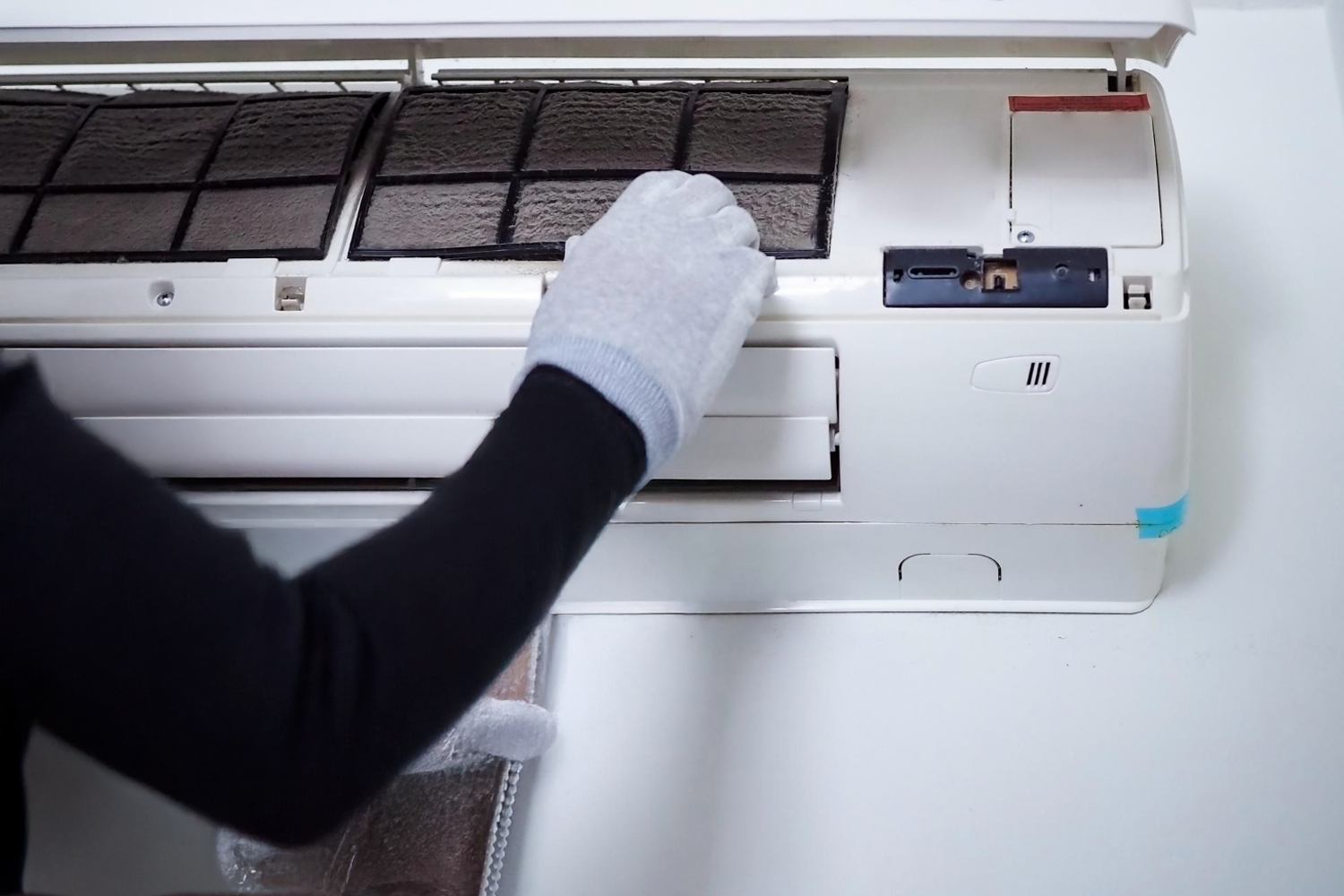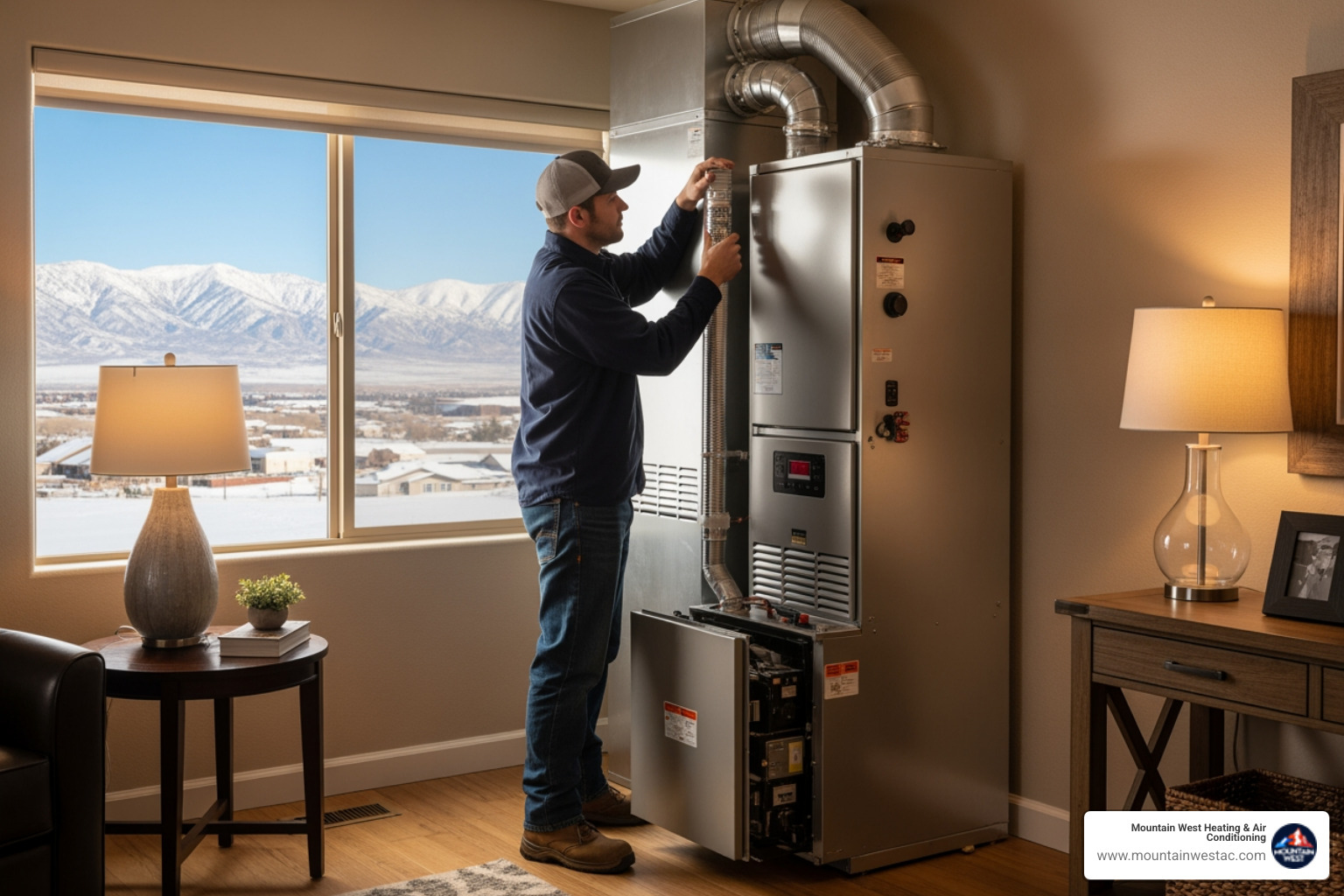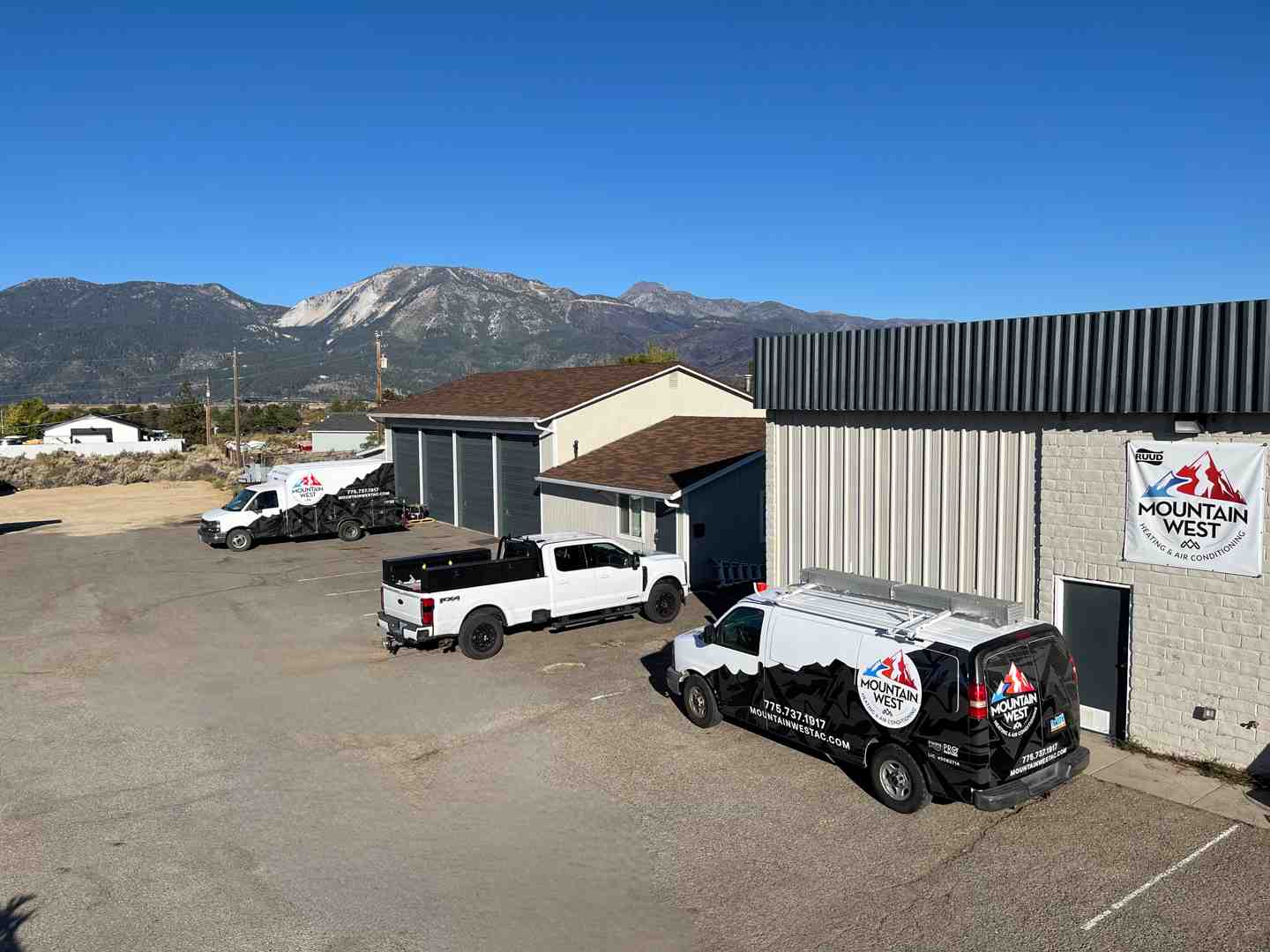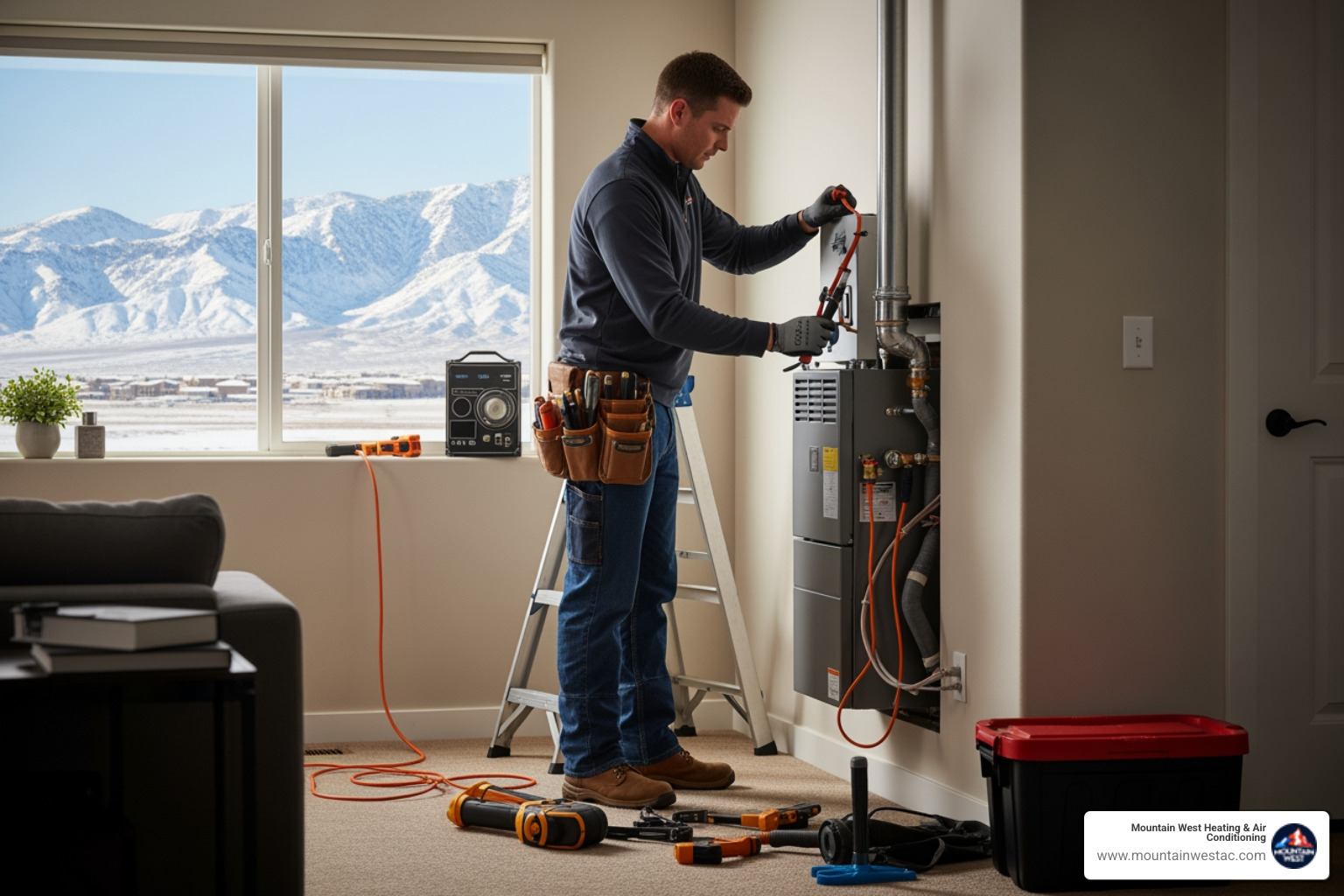Summer is just around the corner, and that means it's time to prepare your air conditioner for the hot months ahead. A seasonal AC maintenance not only keeps your home comfortable but also runs more efficiently, saving you money on energy bills.
Regular maintenance of your air conditioner can extend its lifespan, prevent costly repairs, and ensure it performs at its best when you need it most.
We understand that AC maintenance might seem complicated, but many important tasks are simple enough for homeowners to handle themselves. From cleaning around the outdoor unit to changing filters regularly, these basic maintenance steps make a big difference in how well your system works.
In this article, you’ll learn how to perform seasonal AC maintenance to improve efficiency, prevent breakdowns, and extend your system’s lifespan.
Let’s break down the key points you should consider:
- Why seasonal ac maintenance is essential
- Complete summer AC tune-up checklist
- Common AC problems avoided with regular maintenance
- Cost-effective seasonal HVAC maintenance tips
Taking care of these tasks now can help you avoid emergency breakdowns during the hottest days of the year.
Why seasonal ac maintenance is essential
Taking care of your air conditioner throughout the year helps it run better and last longer. Regular maintenance prevents breakdowns when you need cool air the most and saves money on energy bills and repairs.
The importance of regular HVAC seasonal maintenance
HVAC seasonal maintenance keeps your air conditioning system running smoothly year-round. When we inspect and clean your system regularly, we can catch small problems before they become expensive repairs.
A well-maintained AC unit uses less electricity, which means lower utility bills for you. Most manufacturers require regular maintenance to keep warranties valid, protecting your investment.
Professional technicians check electrical connections, clean coils, and ensure proper refrigerant levels during maintenance visits. These checks help your system deliver consistent temperatures throughout your home.
Regular maintenance also improves indoor air quality by cleaning or replacing filters that trap dust, pollen, and other allergens.
How summer AC tune-ups boost efficiency
Summer AC tune-ups prepare your system for the heavy workload during hot months. A properly tuned air conditioner can be up to 25% more efficient than a neglected one.
During a tune-up, we:
- Clean dirty condenser coils that force your system to work harder
- Check refrigerant levels for optimal cooling
- Lubricate moving parts to reduce friction and energy use
- Test thermostat accuracy for precise temperature control
- Clear drainage systems to prevent water damage
The U.S. Department of Energy reports that routinely replacing or cleaning your air filters can reduce energy consumption by 5–15%, making this one of the simplest and most cost-effective efficiency upgrades you can perform.
These simple steps help your AC run at peak efficiency when you need it most. An efficient system cools your home faster and maintains comfortable humidity levels.
Regular tune-ups also extend the lifespan of your air conditioner, potentially adding 3-5 years to its service life.
Risks involved in skipping AC maintenance
Neglecting AC maintenance creates serious risks to your comfort, finances, and system. Without regular care, small issues often develop into major breakdowns during the hottest days when your system works hardest.
Emergency repairs typically cost 2-3 times more than regular maintenance. These unexpected expenses can strain your budget at inconvenient times.
Dirty, unmaintained systems use up to 30% more energy while providing less cooling. This inefficiency means higher monthly bills without better performance.
The average lifespan of a properly maintained AC unit is 15-20 years, while neglected systems often fail after just 7-10 years. This early replacement costs thousands of dollars that could have been avoided.
Poor maintenance also impacts air quality, potentially triggering allergies or respiratory issues for your family.
Complete summer AC tune-up checklist
Keeping your air conditioner in top shape during summer requires regular maintenance. A well-maintained AC system runs more efficiently, saves money on energy bills, and prevents unexpected breakdowns during the hottest days.
Simple steps for routine AC maintenance
Regular AC maintenance doesn't have to be complicated. Start by changing your air filter every 1-3 months. Dirty filters restrict airflow and make your system work harder than necessary.
Next, clear debris around your outdoor unit. Leaves, twigs, and grass clippings can block airflow. We recommend maintaining at least 2 feet of clearance around the unit.
Check your thermostat settings to ensure they're optimized for summer. Program higher temperatures when you're away to save energy.
Clean your supply and return vents throughout your home. Vacuum them gently to remove dust and ensure proper airflow.
Clean or replace air filters regularly. According to DOE, dirty, clogged filters reduce airflow and system efficiency, allowing debris to bypass the filter and build up on the evaporator coil, which can cause premature system failure.
Don't forget to inspect your condensate drain line. Pour a cup of vinegar through it monthly to prevent clogs that could cause water damage or system shutdown.
DIY HVAC maintenance vs. hiring a professional
While many maintenance tasks are DIY-friendly, some require professional expertise. Homeowners can safely change filters, clean vents, and clear debris around outdoor units.
For more complex tasks, hire a professional HVAC technician. They have the tools and knowledge to:
- Check refrigerant levels
- Test electrical components
- Clean condenser and evaporator coils
- Calibrate your thermostat
- Inspect ductwork for leaks
Professional tune-ups typically cost $75-$200 but save money long-term by preventing major repairs. Most manufacturers require professional maintenance to keep warranties valid.
We recommend a balanced approach: perform monthly DIY maintenance checks while scheduling professional tune-ups once or twice yearly.
How often should you schedule seasonal AC maintenance?
For optimal performance, schedule professional AC maintenance at least once yearly, ideally in spring before heavy summer use begins. This timing allows technicians to catch potential issues before they become problems during peak cooling season.
Homes with multiple pets, residents with allergies, or older HVAC systems benefit from twice-yearly professional service. The second check can be scheduled in fall after summer use ends.
Your maintenance schedule should also include monthly DIY checks:
- Filter inspection/replacement
- Outdoor unit debris clearance
- Thermostat battery check
- Condensate drain line inspection
Follow manufacturer recommendations for your specific model. Some high-efficiency systems require more frequent attention to maintain performance and efficiency ratings.
Regular maintenance extends your system's lifespan. Most AC units last 10-15 years, but well-maintained systems often reach the upper end of that range or beyond.
Common AC problems avoided with regular maintenance
Regular AC maintenance helps prevent many common problems that can lead to discomfort and expensive repairs. Taking care of your system before issues arise saves money and keeps your home comfortable during hot weather.
Spotting early HVAC system issues
Regular maintenance helps identify potential problems before they become serious. During routine inspections, technicians can spot worn belts, dirty coils, and refrigerant leaks that might otherwise go unnoticed until they cause a breakdown.
Strange noises like grinding, squealing, or banging are early warning signs that shouldn't be ignored. These sounds often indicate loose parts or components that need lubrication.
Poor airflow is another common issue that maintenance can prevent. When filters become clogged with dust and debris, your system works harder and delivers less cooling power.
Unusual odors coming from vents might signal mold growth or electrical problems. Regular cleaning of your system's components helps eliminate these concerns before they affect your indoor air quality.
Advantages of preventative HVAC maintenance
Preventative maintenance significantly reduces energy costs. A well-maintained AC unit uses 15-20% less energy than a neglected one. This translates to lower utility bills during summer months.
Regular maintenance improves indoor air quality by ensuring filters are clean and ducts are free of contaminants. This is especially important for family members with allergies or respiratory conditions.
Consistent upkeep helps maintain warranty coverage. Many manufacturers require proof of regular maintenance to honor warranty claims.
Emergency repair calls decrease dramatically with routine maintenance. Most HVAC professionals find that systems they regularly service rarely experience unexpected breakdowns during peak summer months.
Preventative care also ensures your system maintains its cooling capacity, preventing uncomfortable temperature fluctuations throughout your home.
Extending your AC unit's lifespan with maintenance
The average AC unit lasts 10-15 years, but regular maintenance can extend this lifespan by 3-5 years. This represents significant savings on replacement costs.
Simple tasks like changing filters every 1-3 months prevent your system from overworking. A clean filter allows proper airflow and reduces strain on the compressor.
Annual professional inspections help identify and correct issues with electrical connections, moving parts, and refrigerant levels before they cause permanent damage.
Keeping outdoor units clear of debris and vegetation improves efficiency and prevents premature wear. We recommend maintaining at least 2 feet of clearance around your outdoor unit.
Properly maintained systems operate at their original efficiency levels longer. This means your older unit can continue performing well, postponing the need for replacement.
Cost-effective seasonal HVAC maintenance tips
Taking care of your HVAC system doesn't have to break the bank. With regular attention and some simple DIY approaches, you can save money while extending the life of your equipment.
Understanding the $5000 AC rule
The $5000 AC rule refers to the approximate cost of replacing an air conditioning system. This amount serves as a benchmark when deciding whether to repair or replace your unit.
Most HVAC professionals suggest that if a repair costs more than 50% of a new system's price, replacement is often more economical. For example, if fixing your current unit costs $2,500 and a new one is $5,000, you might want to consider upgrading.
Age plays a critical role in this decision. AC units typically last 10-15 years. When your system approaches this age range and needs expensive repairs, replacement often makes more financial sense.
The rule helps us make informed decisions about maintenance versus replacement costs. By understanding this principle, we can better budget for HVAC expenses and avoid throwing good money after bad.
Budget-friendly HVAC maintenance practices
Regular DIY maintenance can dramatically reduce HVAC costs. Here are proven practices that won't strain your budget:
Change air filters every 1-3 months. Dirty filters force your system to work harder, increasing energy bills by up to 15%. Basic filters cost only $10-20.
Clean outdoor condenser units by removing debris and gently hosing down the exterior. This simple task improves efficiency without costing a penny.
Program your thermostat to reduce operation when you're away. Even manual adjustments can save 10% annually on heating and cooling costs.
Seal ductwork leaks with metal-backed tape. This $10 investment can improve system efficiency by up to 20%.
Clean vents and registers regularly to ensure proper airflow. Use your vacuum's brush attachment for this no-cost maintenance task.
These simple steps require minimal investment but yield significant savings over time.
Evaluating the value of seasonal AC maintenance services
Professional maintenance services typically cost $75-$200 per visit, but this expense often pays for itself through various benefits.
Energy savings: A well-maintained system uses 15-20% less energy than a neglected one. For a home with $200 monthly energy bills, this translates to $30-40 monthly savings.
Extended equipment life: Regular professional service can add 3-5 years to your system's lifespan. When spread across those years, the annual maintenance cost becomes quite reasonable compared to earlier replacement.
Warranty protection: Many manufacturers require professional maintenance to keep warranties valid. This protection alone can save thousands if a major component fails.
Preventive repairs: Technicians identify small issues before they become expensive problems. A $150 maintenance visit could prevent a $1,000 emergency repair.
We recommend evaluating these benefits against your system's age, condition, and the complexity of your HVAC setup to determine if professional services make sense for your situation.
Conclusion
Taking care of your air conditioner throughout the year helps it work better and last longer. Regular maintenance saves money on repairs and energy bills while keeping your home comfortable.
Seasonal tasks like cleaning around the outdoor unit, changing filters, and checking for issues are simple but effective. Many of these jobs can be done without special tools or expertise.
For best results, create a maintenance schedule that addresses each season's unique challenges. Spring preparation ensures your system is ready for summer heat, while fall maintenance helps protect it during winter months.
We recommend a mix of DIY maintenance and professional check-ups. Having an HVAC technician inspect your system once or twice a year catches problems you might miss.
Remember that a well-maintained air conditioner not only works better but also uses less energy. This is good for both your wallet and the environment.
By following these simple seasonal maintenance tips, you'll enjoy reliable cooling, fewer breakdowns, and a longer-lasting air conditioning system.
Schedule your seasonal AC maintenance today to keep your system running efficiently and avoid costly summer breakdowns.









